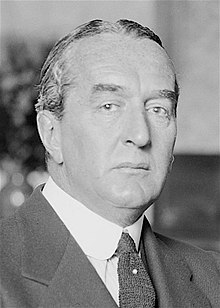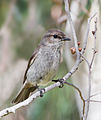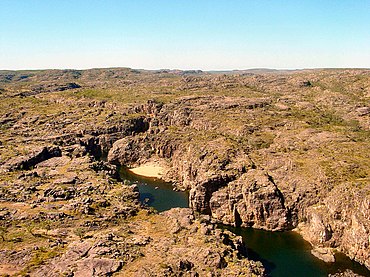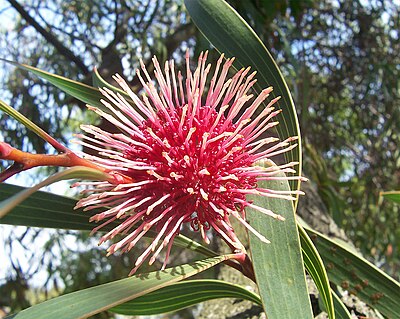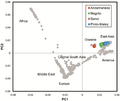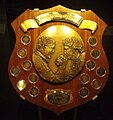| Showcase | Content | Interesting facts | Contributing |
Introduction

Australia, officially the Commonwealth of Australia, is a sovereign country comprising the mainland of the Australian continent, the island of Tasmania, and numerous smaller islands. Australia is the largest country by area in Oceania and the world's sixth-largest country. Australia is the oldest, flattest, and driest inhabited continent, with the least fertile soils. It is a megadiverse country, and its size gives it a wide variety of landscapes and climates, with deserts in the centre, tropical rainforests in the north-east, tropical savannas in the north, and mountain ranges in the south-east.
The ancestors of Aboriginal Australians began arriving from south-east Asia 50,000 to 65,000 years ago, during the last glacial period. They settled the continent and had formed approximately 250 distinct language groups by the time of European settlement, maintaining some of the longest known continuing artistic and religious traditions in the world. Australia's written history commenced with European maritime exploration. The Dutch were the first known Europeans to reach Australia, in 1606. British colonisation began in 1788 with the establishment of the penal colony of New South Wales. By the mid-19th century, most of the continent had been explored by European settlers and five additional self-governing British colonies were established, each gaining responsible government by 1890. The colonies federated in 1901, forming the Commonwealth of Australia. This continued a process of increasing autonomy from the United Kingdom, highlighted by the Statute of Westminster Adoption Act 1942, and culminating in the Australia Acts of 1986.
Australia is a federal parliamentary constitutional monarchy comprising six states and ten territories. Its population of nearly 27 million is highly urbanised and heavily concentrated on the eastern seaboard. Canberra is the nation's capital, while its most populous cities are Sydney, Melbourne, Brisbane, Perth and Adelaide. Australian governments have promoted multiculturalism since the 1970s. Australia is culturally diverse and has one of the highest foreign-born populations in the world. Its abundant natural resources and well-developed international trade relations are crucial to the country's economy, which generates its income from various sources: predominately services (including banking, real estate and international education) as well as mining, manufacturing and agriculture. It ranks highly for quality of life, health, education, economic freedom, civil liberties and political rights.
Featured article -
The Barry Sheene Medal is an annual award honouring the achievements of a driver in the Supercars Championship, an Australian touring car series. Tony Cochrane, the chairman of the championship's organising body Australian Vee Eight Supercar Company (AVESCO), instigated the award in 2003. The medal is named after the two-time Grand Prix motorcycle world champion and motor racing television commentator Barry Sheene. It is presented to the driver adjudged to have displayed "outstanding leadership, media interaction, character, personality, fan appeal and sportsmanship throughout the season". A panel of motor racing journalists individually award three drivers scores of three, two and one points after every event of the season. The results are announced at the series' end-of-season gala in Sydney. (Full article...)
Selected biography -
Stanley Melbourne Bruce, 1st Viscount Bruce of Melbourne CH MC PC FRS (15 April 1883 – 25 August 1967) was an Australian politician, statesman and businessman who served as the eighth prime minister of Australia from 1923 to 1929. He held office as the leader of the Nationalist Party, having previously served as the treasurer of Australia from 1921 to 1923. (Full article...)
Did you know (auto-generated) -
- ... that Australian writer Gertrude Hart was a co-founder of the Old Derelicts' Club, which later became the Society of Australian Authors?
- ... that Australian neurosurgeon Jeffrey Rosenfeld led the team developing a wireless device that promises to give limited vision to the totally blind?
- ... that Lowe Kong Meng imported goods for Chinese miners during the Victorian gold rush and became one of the wealthiest men in Victoria?
- ... that the developers of Hotline Miami 2: Wrong Number suggested that Australian customers pirate their game?
- ... that Monique Ryan ran for election to the Parliament of Australia after seeing an advertisement in the newspaper calling for an independent candidate?
- ... that Towa Tei's "Sometime Samurai" remained unfinished for eight years until Australian singer Kylie Minogue re-recorded the song in 2004?
- ... that the specific epithet of Platycephalus endrachtensis is from an old word for Australia?
- ... that although the Eurovision Song Contest 2020 was cancelled, Iceland's planned entry for that year was chosen as the alternative winner in several countries, including Sweden and Australia?
In the news
- 2 March 2024 – 2024 Dunkley by-election
- In Australia, Jodie Belyea retains the seat of Dunkley for the Australian Labor Party despite a notable swing towards the Liberal Party. (ABC News Australia)
- 28 January 2024 – 2024 ATP Tour
- 2024 Australian Open
- In tennis, Jannik Sinner defeats Daniil Medvedev in the final, 3–6, 3–6, 6–4, 6–4, 6–3, to win the men's singles title at the 2024 Australian Open. It is Sinner's first major singles title and the first for an Italian player at the tournament. (CNN)
- 27 January 2024 – Israel–Hamas war
- The United Kingdom, United States, Australia, Italy, Canada, Finland, the Netherlands, Switzerland, and Germany suspend humanitarian aid to UNRWA over allegations that some UNRWA staff members were involved in the Hamas-led attack on Israel. (BBC News) (CBS News)
Selected pictures -
On this day

- 1909 – Australian actor Chips Rafferty was born in Broken Hill.
- 1984 – The $100 note was put into circulation, Douglas Mawson and John Tebbutt were illustrated on the note.
- 2006 – The 2006 Commonwealth Games held in Melbourne close, Australia wins 84 gold, 69 silver and 68 bronze medals, the most of any competing nation.
General images
Topics
More portals
WikiProject
 |
 |
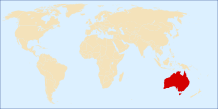
| |
Consider joining WikiProject Australia, a WikiProject dedicated to improving Wikipedia's coverage of topics related to Australia. The project page and its subpages contain suggestions on formatting and style of articles, which can be discussed at the project's notice board. To participate, simply add your name to the project members page.
As of 26 March 2024, there are 201,865 articles within the scope of WikiProject Australia, of which 590 are featured and 885 are good articles. This makes up 2.97% of the articles on Wikipedia, 5.48% of all featured articles and lists, and 2.25% of all good articles (see WP:AUSFG). Including non-article pages, such as talk pages, redirects, categories, etcetera, there are 514,496 pages in the project.
Associated Wikimedia
The following Wikimedia Foundation sister projects provide more on this subject:
-
Commons
Free media repository -
Wikibooks
Free textbooks and manuals -
Wikidata
Free knowledge base -
Wikinews
Free-content news -
Wikiquote
Collection of quotations -
Wikisource
Free-content library -
Wikiversity
Free learning tools -
Wikivoyage
Free travel guide -
Wiktionary
Dictionary and thesaurus

